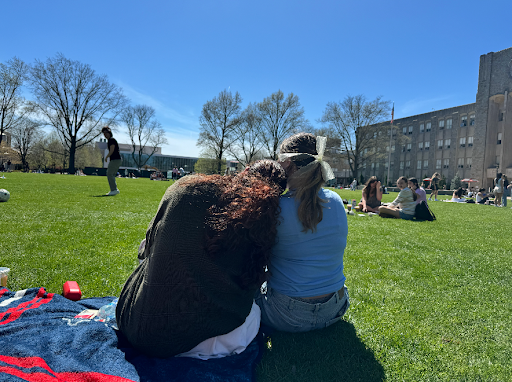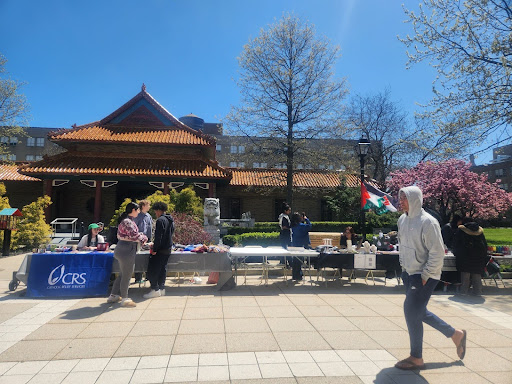Believe it or not, the St. John’s library is more than just a place to pick up coffee before class. The sad thing is, most students don’t know that.
Walking through St. Augustine Hall on any given day can be shocking, to say the least. Students talk loudly with their friends, take phone calls in the “quiet study area,” or even bring food into research areas clearly marked with “No Food or Drink” signs. I’ve seen all of that, and it’s always left me feeling disappointed. But while it’s sad to see how disrespectful some students are while in the library, it’s even more disheartening to think of all the students who aren’t and never are in the library.
It’s no myth that a large portion of St. John’s students don’t use St. Augustine Hall for academic pursuits. The demand to go to the library is simply not there, with only a handful of students populating the building on most nights.
The University seems to have recognized the need to revamp its library and has included St. Augustine Hall in its “master plan” of construction. Although plans are not entirely complete, the renovations will potentially create a Humanities Center and faculty offices, among other things.
But to do so, librarians must cut some books from its stacks, sending them to organizations such as Better World Books, an organization that sells discarded and donated materials from libraries across the country.
Many faculty members were up in arms over the University’s policy of removing books, and were even more frustrated that they were not initially asked to help weed out the books along with the library staff.
Luckily, librarians – especially Theresa Maylone and Andrew Sankowski – are now aware of that frustration and have been extremely supportive of the faculty’s efforts to now participate in the selection process.
“I am incredibly encouraged with the passion and interest the faculty have shown,” Maylone told the Torch. “I think this is the beginning of an excellent communication between the library and faculty.”
Professors I’ve spoken with – most notably English Department chair Dr. Stephen Sicari – agreed that the communication that is developing between faculty and librarians will be very beneficial.
But one question remains: why were professors not told about the weeding-out process earlier?
From what I’ve seen, the librarians are not to blame. They have been more than supportive of faculty involvement and appreciate that professors want to help them do their jobs. Granted, they did not inform all departments as soon as they learned that books needed to be removed, but that has luckily changed with the increased communication.
Instead, I view this issue as a cautionary tale for the University in general, especially administrators.
Ibi Yolas, the executive director of Design and Construction at St. John’s, told me that this is a situation that is “really between just the libraries and the faculty.” But why is that?
In December when the Board of Trustees – the group in charge of the “master plan” – told the librarians that the deadline for picking which books to remove would be shortly after graduation, they put an added stress on the library staff to speed up the selection process. This gave only around four months to finalize which books should be removed – a time constraint that professors find too binding. As Maylone noted, “Time is our enemy in this regard.”
Why didn’t the Board of Trustees contact professors to let them know what was going on? Why not encourage the creation of independent departmental book collections to decrease the amount of books to be shipped off campus?
The renovations to the library are essential, especially the ones that will improve its infrastructure. As Maylone noted, some of the conditions in St. Augustine are “deplorable,” with leaks occurring every two days or so.
But the University cannot view the renovations of St. Augustine Hall like any other construction project. There’s so much more to working on a library than simply freeing up space and fixing leaks.
By giving the library staff and professors only a few months to finalize which books should be removed, they are now in a race against the clock. The stacks are important to any library, and if St. John’s wants students to take a more academic approach to St. Augustine, then serious consideration needs to be made in regards to what can stay and what can go.
The library is the focal point of our University, both aesthetically and intellectually. As Dr. Luba Racanska, chair of the Government and Politics department, wisely told a Torch reporter, the library is one of the most important aspects of any university and serves as an “intellectual center.”
It’s too bad that most students I see don’t view it as such. Let’s just hope that administrators don’t feel the same.
















